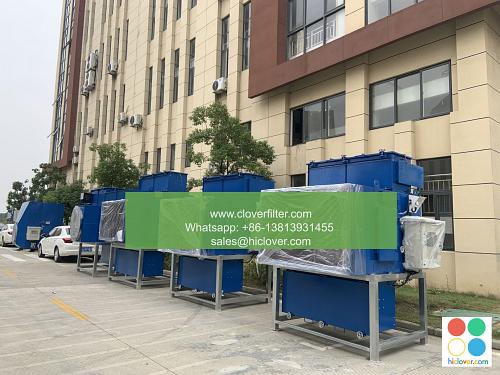A Comprehensive Guide to Choosing the Best Air Filter for Your HVAC System

When it comes to maintaining a healthy and comfortable indoor environment, a well-functioning Heating, Ventilation, and Air Conditioning (HVAC) system is essential. One of the crucial components of an HVAC system is the air filter, which plays a vital role in improving indoor air quality, reducing energy consumption, and prolonging the lifespan of the system. In this article, we will provide a comprehensive guide to choosing the best air filter for your HVAC system, highlighting various application areas and key considerations.
Understanding the Importance of Air Filters in HVAC Systems
Air filters are designed to capture dust, pollen, pet dander, and other airborne pollutants, preventing them from circulating in the air and causing respiratory issues. A good air filter can also help reduce energy consumption by allowing the HVAC system to operate more efficiently. Furthermore, air filters can help extend the lifespan of the HVAC system by reducing the amount of dirt and debris that enters the system.
Types of Air Filters: A Comparison
There are several types of air filters available, each with its own strengths and weaknesses. Some of the most common types of air filters include:
* Fiberglass Air Filters: These are the most basic and inexpensive type of air filter. They are effective at capturing large particles, but may not be as effective at capturing smaller particles.
* Pleated Air Filters: These filters have a pleated design, which allows them to capture more particles than fiberglass filters. They are also more energy-efficient and can help reduce energy consumption.
* High-Efficiency Particulate Air (HEPA) Filters: These filters are designed to capture 99.97% of particles as small as 0.3 microns. They are ideal for households with pets or allergies.
* Activated Carbon Air Filters: These filters are designed to capture gases and odors, making them ideal for households with pets or smokers.
* Smart Air Filters: These filters are equipped with sensors and can be controlled remotely. They can also provide real-time feedback on air quality and filter performance.
Application Areas: Choosing the Right Air Filter for Your Needs
Different application areas require different types of air filters. For example:
* Residential Air Filters: These filters are designed for use in residential HVAC systems. They are typically less expensive and less efficient than commercial air filters.
* Commercial Air Filters: These filters are designed for use in commercial HVAC systems. They are typically more expensive and more efficient than residential air filters.
* Industrial Air Filters: These filters are designed for use in industrial HVAC systems. They are typically more robust and more efficient than commercial air filters.
* Healthcare Air Filters: These filters are designed for use in healthcare facilities. They are typically more efficient and more effective at capturing airborne pathogens than other types of air filters.
Key Considerations: Choosing the Best Air Filter for Your HVAC System
When choosing an air filter for your HVAC system, there are several key considerations to keep in mind. These include:
* Filter Efficiency: Look for a filter with a high MERV (Minimum Efficiency Reporting Value) rating, which indicates the filter’s ability to capture particles.
* Filter Size: Make sure the filter is the correct size for your HVAC system.
* Filter Type: Choose a filter that is designed for your specific application area.
* Maintenance Requirements: Consider the maintenance requirements of the filter, including how often it needs to be replaced.
* Cost: Consider the cost of the filter, including the initial purchase price and any ongoing maintenance costs.
Conclusion
Choosing the best air filter for your HVAC system can be a complex and overwhelming task. However, by understanding the importance of air filters, the different types of air filters available, and the key considerations to keep in mind, you can make an informed decision and choose the best air filter for your needs. Remember to consider your specific application area, including residential, commercial, industrial, or healthcare, and choose a filter that is designed to meet your specific needs. With the right air filter, you can improve indoor air quality, reduce energy consumption, and prolong the lifespan of your HVAC system. You haven’t provided a prompt or question for me to respond to. Please provide more context or ask a specific question, and I’ll do my best to assist you.

